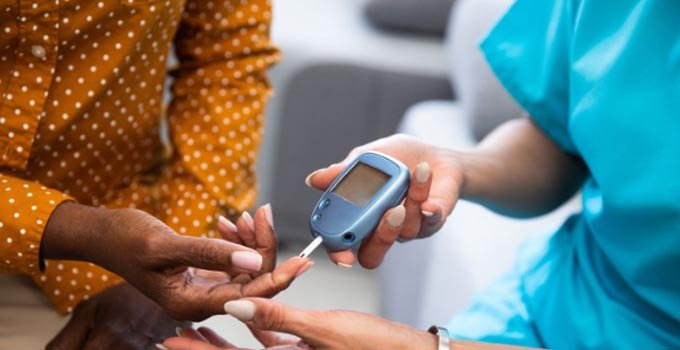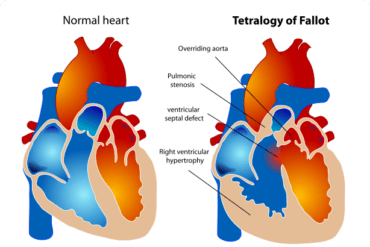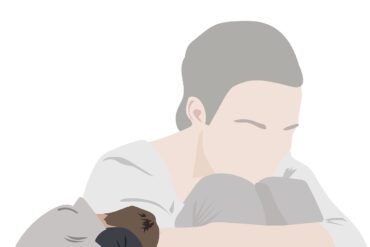Recognizing the Early Symptoms of Diabetes

Table of Contents
- Fatigue and increased thirst
- Frequent urination and hunger
- Unexplained weight loss and blurred vision
- Slow healing and frequent infections
- Tingling or numbness in extremities
Fatigue and Increased Thirst
Diabetes is a chronic condition that affects millions of people worldwide. Recognizing the early symptoms of diabetes is crucial for timely diagnosis and effective management. Two common early signs of diabetes are fatigue and increased thirst.
Fatigue:
- Feeling tired and lacking energy is a common symptom of diabetes. High blood sugar levels can disrupt the body’s ability to convert glucose into energy, resulting in fatigue.
- Individuals may experience excessive tiredness even after getting adequate rest. Everyday tasks may become exhausting and strenuous.
- If you notice persistent and unexplained fatigue, it is advisable to consult a healthcare professional for a thorough evaluation.
Increased Thirst:
- Diabetes can cause excessive thirst, known as polydipsia. The body tries to eliminate excess glucose by increasing urine production, leading to dehydration.
- As a result, individuals feel an intense need to drink more fluids to quench their thirst and combat dehydration.
- Increased thirst, especially when combined with frequent urination and other diabetes symptoms, may indicate the need for medical attention.
It is important to note that experiencing fatigue and increased thirst does not automatically mean you have diabetes. However, these symptoms serve as warning signs that warrant further investigation.
If you notice these symptoms persisting and affecting your daily life, it is recommended to schedule an appointment with a healthcare professional. They can conduct relevant tests, such as a fasting blood sugar test or an oral glucose tolerance test, to determine whether you have diabetes or any other underlying health condition.
Early detection of diabetes allows for prompt management and can help prevent complications. Lifestyle modifications, medication, and monitoring blood sugar levels may be necessary to control diabetes effectively.
Awareness of the early symptoms can empower individuals to seek medical advice promptly, enabling timely intervention and better overall health outcomes.
Frequent Urination and Hunger
One of the early signs of diabetes is frequent urination, known as polyuria. This occurs when your body tries to lower high blood sugar levels by getting rid of the excess glucose through urine. If you find yourself urinating more often than usual, especially waking up multiple times during the night to urinate, it may be a cause for concern. Frequent urination can also lead to dehydration, as your body loses more water.
Another symptom to watch out for is increased hunger or polyphagia. When you have diabetes, your body struggles to properly convert glucose into energy, leading to persistent hunger. As a result, you may feel the need to eat more frequently and in larger quantities than before. Despite eating more, you may still experience weight loss due to the inability of the body to utilize glucose effectively.
If you notice these symptoms and they persist, it is essential to consult a healthcare professional for proper diagnosis and treatment. They may recommend a blood test to measure your blood sugar levels and confirm whether or not you have diabetes. Early detection is crucial as it can help prevent further complications and allow for timely management.
The following additional symptoms may accompany frequent urination and increased hunger:
- Excessive thirst (polydipsia)
- Fatigue and weakness
- Blurred vision
- Slow healing of wounds
- Irritability
- Tingling or numbness in hands or feet
Keep in mind that these symptoms may vary from person to person, and some individuals may experience only a few of them. Regular check-ups and maintaining a healthy lifestyle can significantly lower the risk of developing diabetes or help manage the condition if you are already diagnosed.
Unexplained Weight Loss and Blurred Vision
Two early symptoms of diabetes that should not be ignored are unexplained weight loss and blurred vision. These signs may indicate that your body’s ability to regulate blood sugar levels has been compromised. If you notice these symptoms, it is crucial to consult a healthcare professional for proper diagnosis and treatment. Unexplained weight loss can occur when the body loses sugar through frequent urination. This can lead to a calorie deficit, causing weight loss even if you maintain your regular diet. If you have unintentionally lost more than 5% of your body weight within a few months without any changes in your lifestyle, it may be a sign of diabetes. Additionally, blurred vision can be a consequence of high blood sugar levels affecting the lens in your eyes. When blood glucose levels are elevated, fluids may be pulled from the lens, affecting its ability to focus properly. As a result, your vision may become blurry or distorted. If you experience blurred vision, it is crucial to have your blood sugar levels checked. If you notice either of these symptoms, it is important to seek medical attention promptly. Early detection and management of diabetes can help prevent complications and maintain overall health. Along with weight loss and blurred vision, other early signs of diabetes may include increased thirst and frequently feeling the need to urinate. To gain a better understanding of your symptoms, your healthcare provider may perform blood tests to measure your blood glucose levels. They may also assess other factors such as family history, lifestyle, and any additional symptoms you may be experiencing. Remember, awareness and timely intervention play a vital role in managing diabetes. While these symptoms may be concerning, developing an appropriate treatment plan with your healthcare provider can help you keep your blood sugar levels under control and maintain optimal well-being.
- Unexplained weight loss can be a sign of diabetes.
- Blurred vision may occur due to high blood sugar levels affecting the lens in the eyes.
- Consult a healthcare professional for accurate diagnosis and treatment.
- Early detection and management of diabetes can prevent complications.
- Additional symptoms of diabetes include increased thirst and frequent urination.
- Medical tests may be required to assess blood glucose levels and other factors.
- Creating a treatment plan with your healthcare provider is crucial for managing diabetes effectively.
Slow Healing and Frequent Infections
One of the early warning signs that could indicate the presence of diabetes is slow healing and frequent infections. These symptoms occur when the body’s ability to fight off infections is compromised due to high blood sugar levels.
When diabetes is not managed properly, it can cause a decrease in blood circulation and damage to the nerves, making it harder for the body to heal itself. Even minor cuts, blisters, or sores may take a significantly longer time to heal. Additionally, individuals with diabetes are prone to developing infections in these areas.
Here are some key points to keep in mind:
- People with diabetes may experience slow healing and increased susceptibility to infections.
- Open wounds, such as cuts or sores, may take longer to heal due to reduced blood flow and nerve damage.
- Infections can develop more easily in these wounds, leading to further complications if left untreated.
- Common infections amongst individuals with diabetes include urinary tract infections, skin infections, and yeast infections.
- Slow healing and frequent infections can affect any part of the body, including the skin, gums, bladder, and genital areas.
If you notice that your wounds are taking longer to heal or if you frequently develop infections, it is important to consult your healthcare provider. Early detection and management of diabetes can help prevent further complications and maintain overall health.
Tingling or Numbness in Extremities
Tingling or numbness in the extremities, such as the hands, fingers, legs, or feet, can be one of the early symptoms of diabetes. This sensation is often described as a feeling of “pins and needles” or a loss of sensation in the affected area. While occasional numbness or tingling can be a temporary and harmless occurrence, persistent and unexplained sensations could indicate an underlying health issue like diabetes.
In a person with diabetes, high blood sugar levels can damage nerves throughout the body, a condition known as diabetic neuropathy. Tingling or numbness is often a result of this nerve damage, which can be caused by either type 1 or type 2 diabetes. If left untreated, diabetic neuropathy can cause further complications and affect various areas of the body, including the extremities.
If you experience tingling or numbness in your extremities, it is important to recognize it as a potential early symptom of diabetes. Here are a few signs that can help you identify whether your symptoms may be related to diabetes:
- Frequent urination: Diabetes can lead to increased urination, causing dehydration and often leading to tingling or numbness in the extremities.
- Excessive thirst: As a result of increased urination, you may often feel very thirsty.
- Unexplained weight loss: Sudden and unintentional weight loss can sometimes be an early sign of diabetes.
- Fatigue: Diabetes can cause fatigue due to the body’s inability to properly utilize glucose for energy.
- Blurred vision: High blood sugar levels can affect the lenses in your eyes, leading to blurred vision.
- Slow-healing wounds: Nerve damage caused by diabetes can slow down the healing process, making wounds take longer to heal.
If you are experiencing any of these symptoms in addition to tingling or numbness in your extremities, it is crucial to consult a healthcare professional for a proper diagnosis. Early detection and management of diabetes can help prevent further complications and improve your overall quality of life.
Remember, tingling or numbness in the extremities can have various causes, but it is essential to recognize it as a potential early warning sign of diabetes. Regular check-ups, maintaining a healthy lifestyle, and monitoring your blood sugar levels can significantly contribute to the prevention and management of diabetes.


























